Whether you have already locked in an internship, are still cranking out applications, or are hoping to get a peek into the places your Asian Studies degree can take you, you’ve come to the right place! In this year’s Alumni Features series, Beyond the Books, join us in exploring career possibilities and advice from folks who were once in your shoes!
In this installment, we’ll hear from Christine, who graduated with a double major in International Relations and Asian Languages and Culture in 2011. She currently works in the TV/film industry as a Freelance Development Producer!
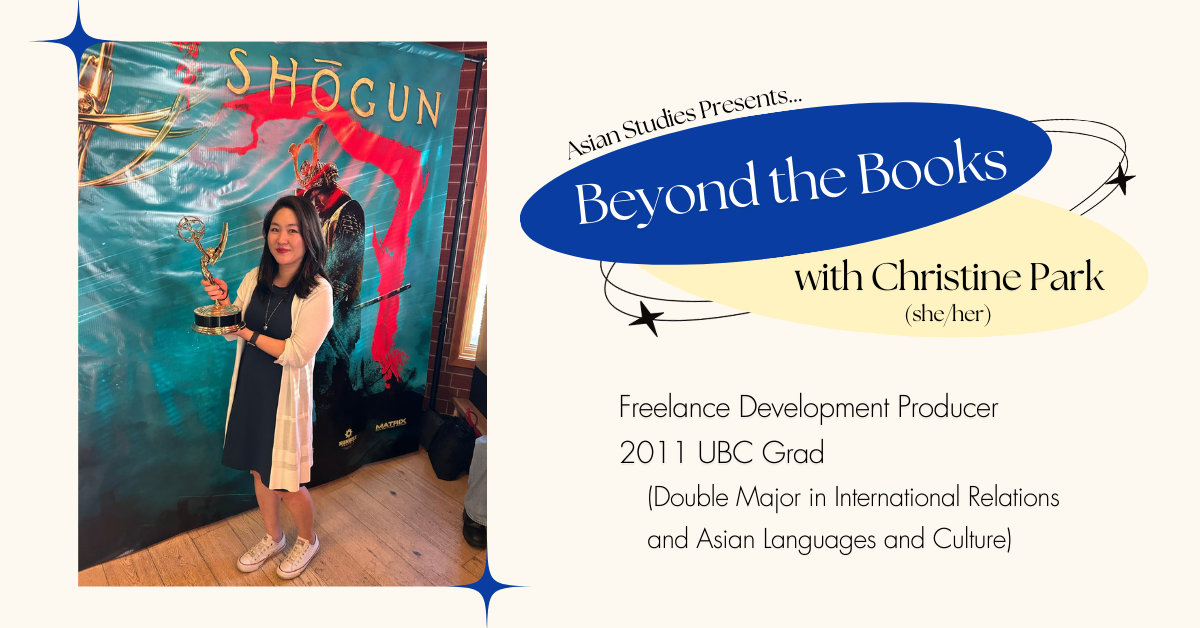

Skip to:
- What did you study at UBC and what do you do now?
- What was your first job after graduation? How have other jobs you held previously lead you to your current position?
- Have any parts of this role challenged you in new ways? How have you approached these opportunities for growth?
- How has your time with Asian Studies helped you in your career?
- Are there any opportunities that were available to you as a UBC student that folks should consider taking advantage of?
What did you study at UBC and what do you do now?
I graduated from UBC with a double major in International Relations & Asian Languages and Culture in 2011. I also went on exchange to Yonsei University in Seoul, South Korea. I was very active in the Asian Studies Club, facilitating language exchange between UBC students and visiting students from Ritsumeikan University and Korea University. I’m still friends with many people I met during that time!
I currently work as a freelance development producer, which usually means I’m working with a production company to develop an idea to pitch to a channel (to hopefully get greenlit). That can be anything from researching, writing, and designing a pitch.
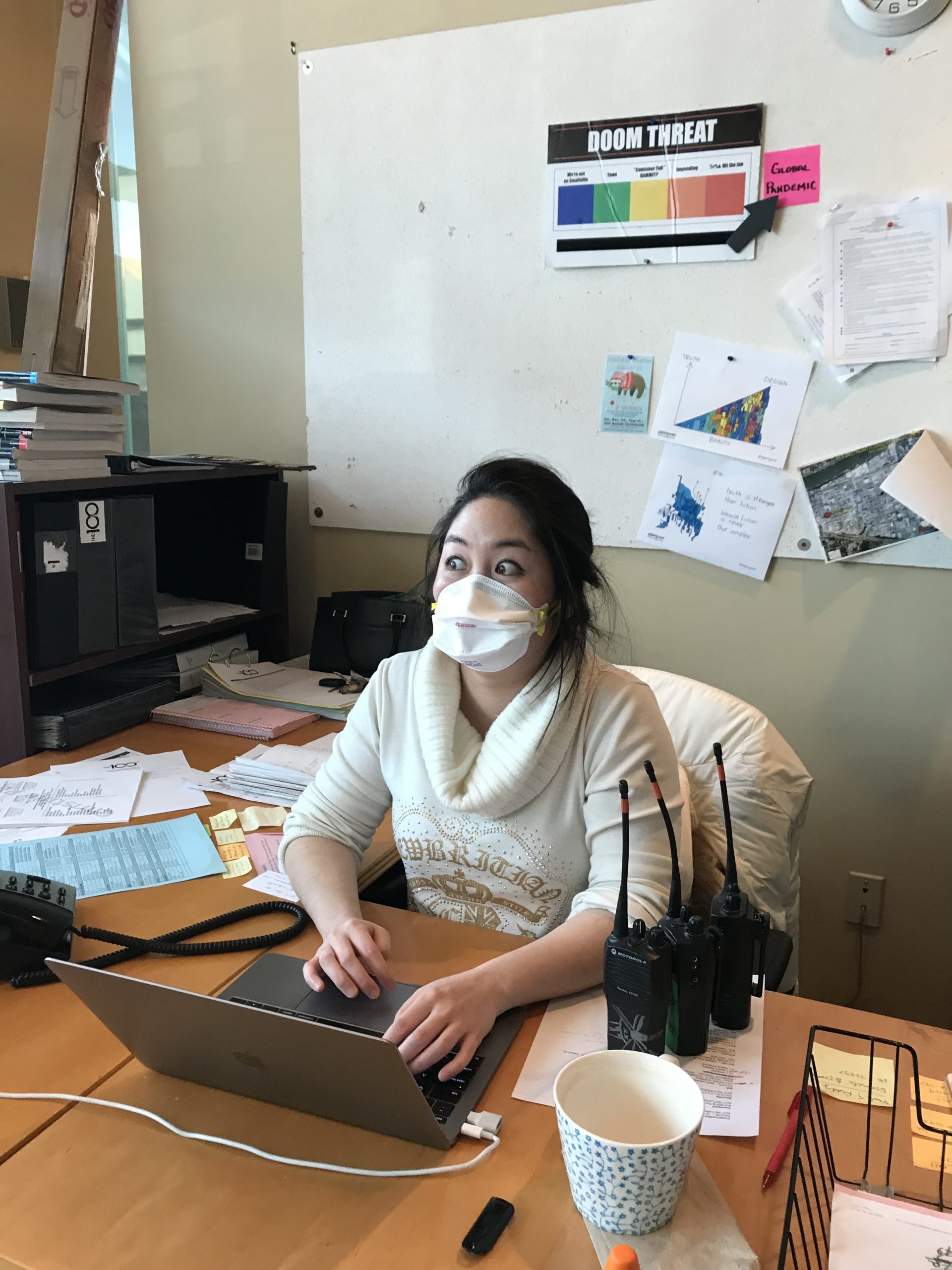

What was your first job after graduation? How have other jobs you held previously lead you to your current position?
After graduating I got a job at the Asia Pacific Foundation of Canada, a think tank on Canada-Asia policy. I stayed there for several years before transitioning into the film/TV industry because I think storytelling is a powerful conduit for cultural change and developing empathy. While they seem like wildly different industries, all the same skills and knowledge transferred over!
After leaving the think tank, I lived and worked in London, UK for a while, where I worked at the European Commission on a contract before getting my break into media at National Geographic. It was from this experience that I could transition into development work and then into production.
Every experience was a piece of the puzzle in the bigger picture. Any office-based job utilizes all the same skills in admin, organization, research, writing, time-management, marketing, communications, etc. Many production on-set jobs can be learned on-the-job, but some require more specialization. Most people do not make as many lateral moves as I have and this isn’t necessary if you know which specific area you want to be in. But these experiences have helped me understand the bigger picture of what other people do, and they’ve been invaluable in my growth, especially in my capacity as a writer and filmmaker!
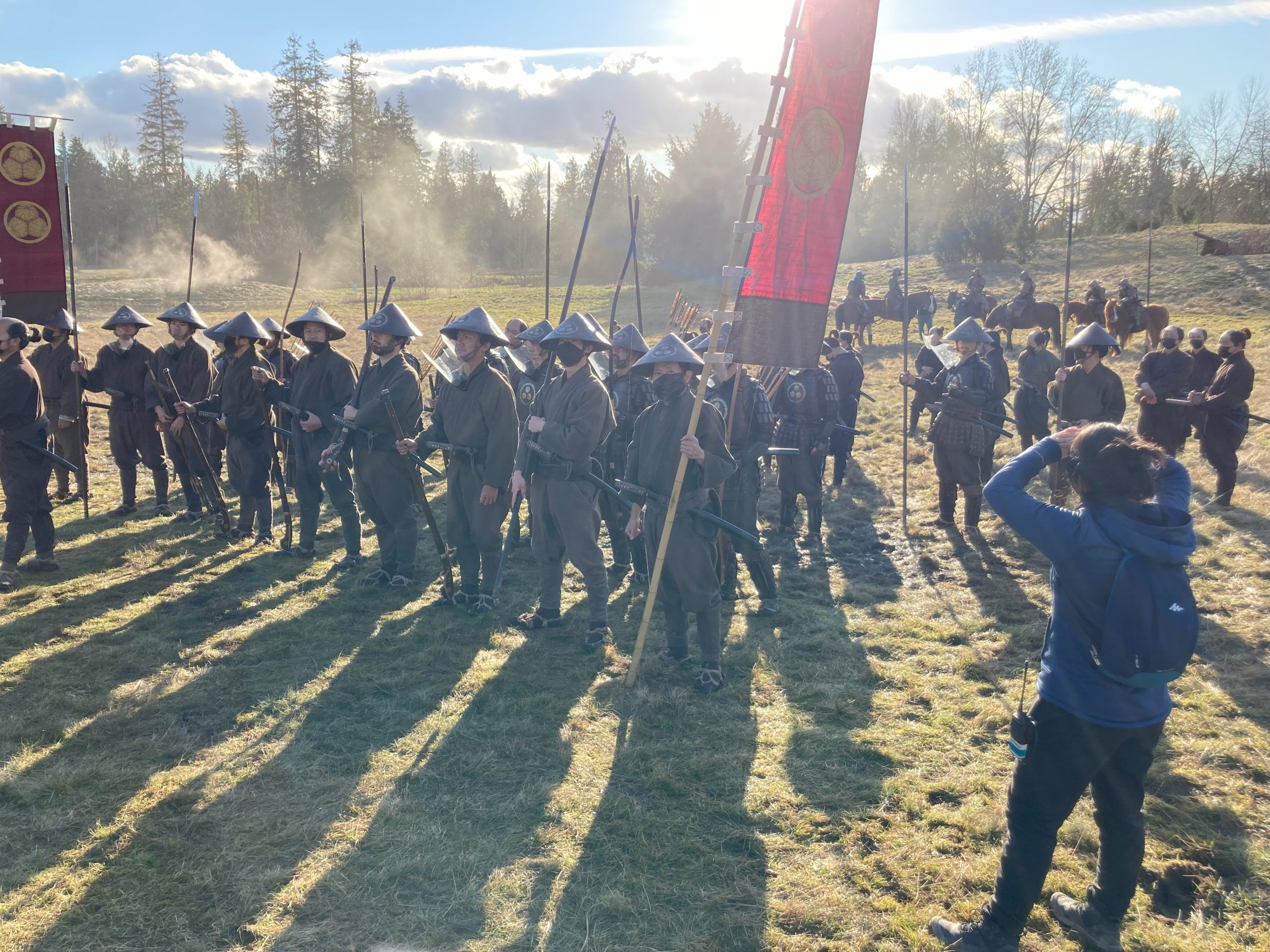

Have any parts of this role challenged you in new ways? How have you approached these opportunities for growth?
When you work in development in TV/film, you hear “no” significantly more than “yes.” This is something you will have to manage your whole career. You have to constantly churn out new ideas and have an understanding of what’s going on in the industry.
A good idea is a good idea, but you have to sell it to someone who will give you the money to make it. This is the biggest challenge for anyone wanting to tell stories. Even more than developing my researching and writing abilities, I’ve had to develop my networks and my pitching skills. This is a very people-based industry and, unfortunately, talent and hard work can only get you so far. Even when you get a “yes,” you might not be working on it or have any sort of creative control over it. These are all things I’m still navigating!
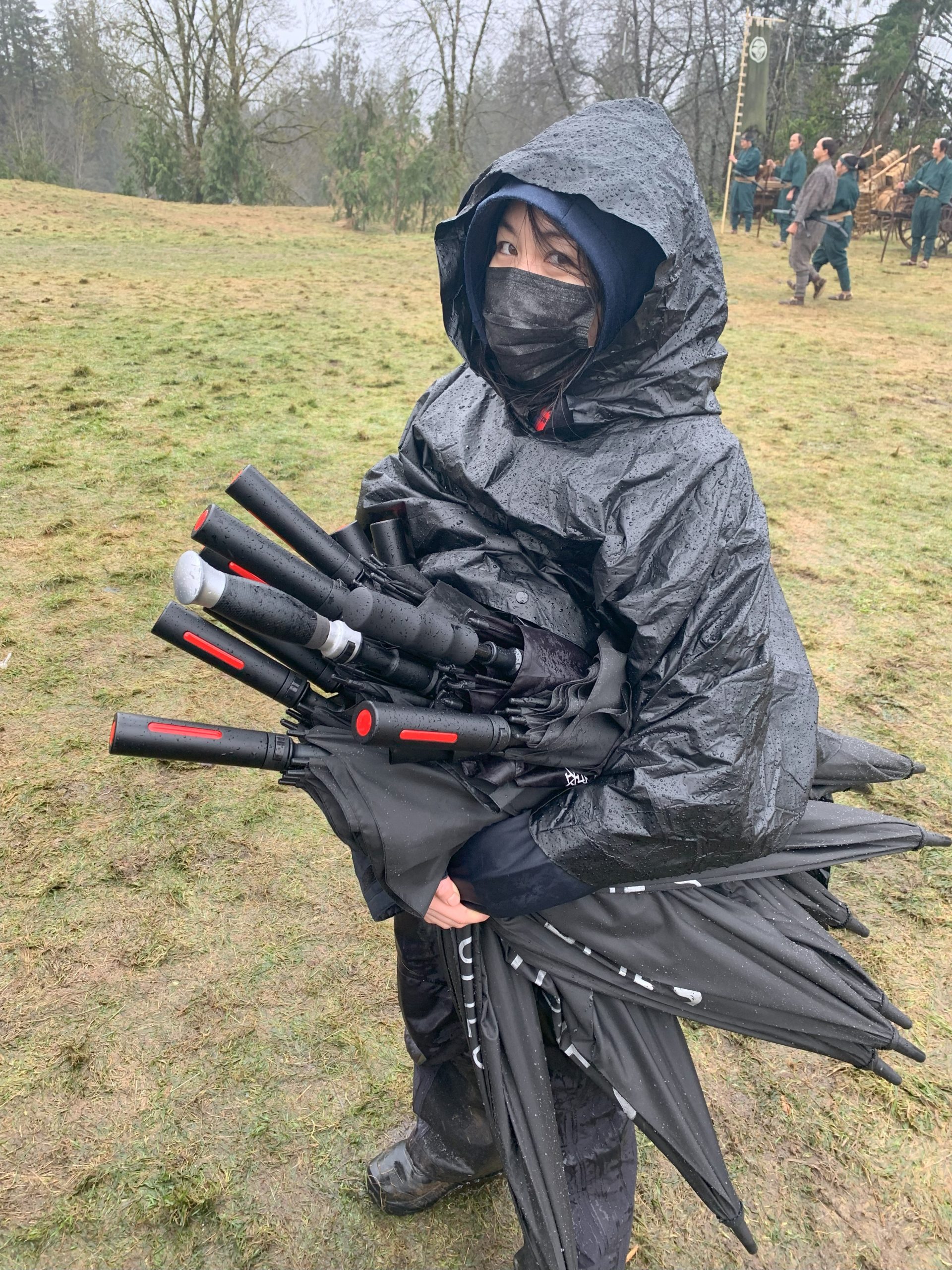

How has your time with Asian Studies helped you in your career?
Throughout my career in TV/film, I’ve also had various production jobs on TV shows, including Shogun and Pachinko. Film and TV is not a place that’s known for being diverse. There have been many voices calling this out, but it remains a problem. So it was a big deal that these shows—Pachinko (I highly recommend everyone watch and read the book!), an intergenerational story about a Korean family that immigrates to Japan and Shogun, a historical drama featuring a mostly Japanese cast with majority of the dialogue in Japanese—even got made, especially with the budgets that they had.
There are hundreds of cast and crew on film sets. On a crew of a few hundred, there were just a handful of people who could speak Korean, Japanese, or know anything about the context of these stories, and I was one of them! I knew the real history of Korean immigrants to Japan from my Asian Studies degree, and I also learned Korean and Japanese language. I also knew about the Tokugawa Shogunate (which Shogun is loosely based-on) from my degree. Any pre-existing knowledge is always helpful and makes a difference in understanding scenes or when communicating with cast and crew.
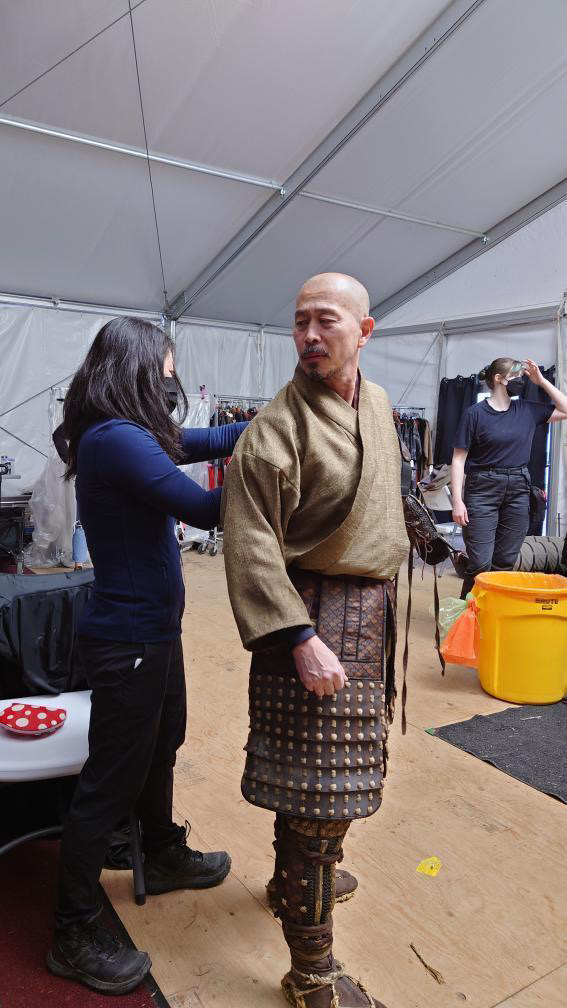

Are there any opportunities that were available to you as a UBC student that folks should consider taking advantage of?
The most practical thing I did as a student at UBC was take part in the Co-op program to get experience working before graduating! On top of the actual work experience you get, it also trained you on how to write a resume and cover letter, as well as interviewing and networking techniques.
I can’t imagine how anyone would get a job after graduating with no work or volunteer experience. Even if it’s a position most might consider simple, like a barista, everything counts. Your studies are important, but just studying will not prepare you for what happens after.
I also highly encourage students to go on exchange if you can afford it. Everyone can benefit from seeing the world from a different culture, experiencing a different way of life, and meeting people from all around the world.
Enjoyed this article? Read our other Alumni Features!


